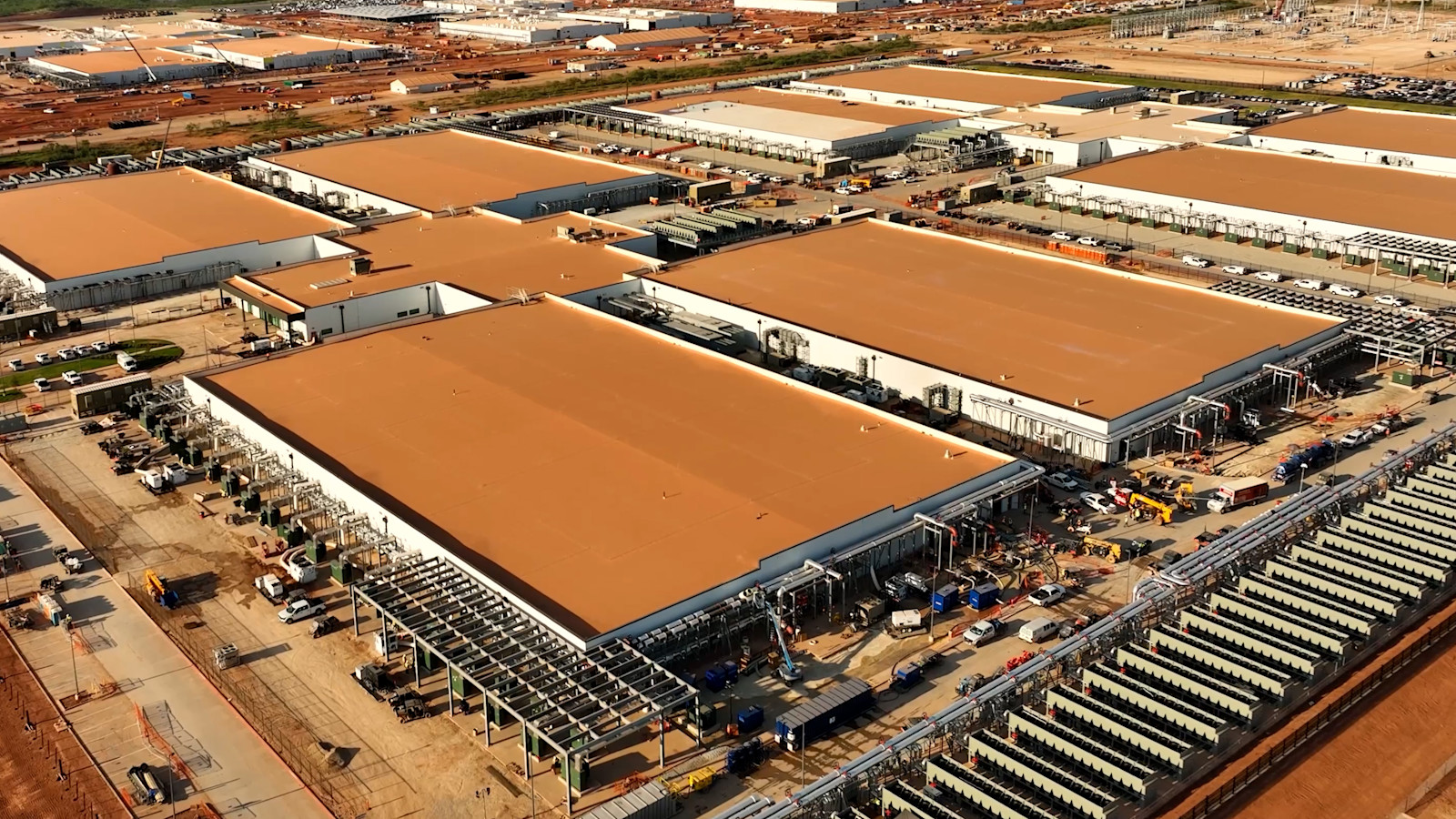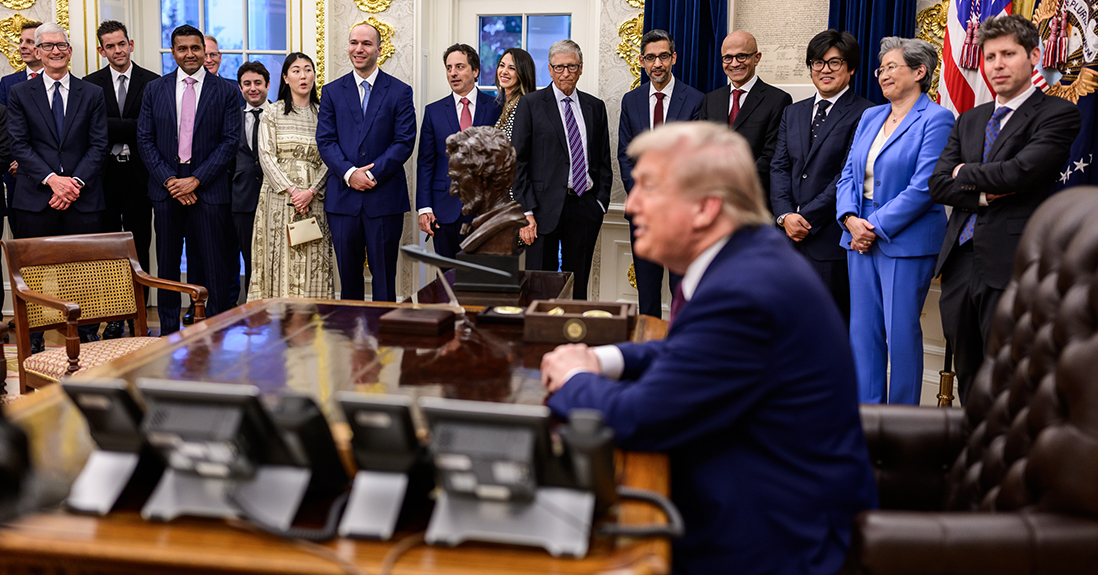OpenAI, Oracle, and SoftBank Expand Stargate Artificial Intelligence Venture

Introduction
OpenAI, Oracle, and SoftBank have recently announced the expansion of Stargate, their joint venture focused on artificial intelligence. Five new AI data center sites have been added, putting Stargate ahead of schedule to reach their goal of securing a full $500 billion commitment and 10-gigawatt capacity by the end of 2025. This is a significant milestone in the development of AI technology and its potential impact on various industries and society as a whole.
Key Details
The addition of these new data centers will provide Stargate with a significant advantage in terms of computing power and data storage. This will allow for more advanced AI research and development, as well as the ability to handle larger and more complex datasets. The increased capacity will also enable Stargate to potentially provide AI solutions to a wider range of industries and businesses, making it a more accessible and influential player in the AI market.
Impact
This expansion also highlights the growing demand for AI technology and the potential impact it can have on various industries. As AI continues to advance and become more mainstream, it is essential for companies like OpenAI, Oracle, and SoftBank to invest in developing and expanding their capabilities. This will not only benefit their own businesses, but also have a significant impact on the overall growth and development of AI and its potential to revolutionize the way we
About the Organizations Mentioned
OpenAI
OpenAI is a leading artificial intelligence research and deployment company founded in 2015 with the mission to ensure that artificial general intelligence (AGI)—AI systems generally smarter than humans—benefits all of humanity[1][2]. Initially established as a nonprofit, OpenAI’s goal has always been to advance safe and broadly beneficial AI technologies. In 2019, OpenAI created a for-profit subsidiary to scale its research and deployment efforts while keeping mission-aligned governance. As of October 2025, this structure evolved into the OpenAI Foundation (nonprofit) governing the OpenAI Group, a public benefit corporation (PBC). This unique corporate form legally binds OpenAI Group to prioritize its mission alongside commercial success, ensuring broader stakeholder interests are considered[1]. The Foundation holds equity in the Group, aligning incentives for long-term impact and growth. Microsoft owns approximately 27% of OpenAI Group, with employees and investors holding the rest[1]. OpenAI is renowned for pioneering breakthroughs in large language models and AI applications. Its products like ChatGPT revolutionized human-computer interaction by enabling natural language conversations and task automation. OpenAI continuously innovates by integrating AI into business tools—for example, its recent launch of “company knowledge” in ChatGPT Business harnesses AI to aggregate and analyze internal company data from apps like Slack, Google Drive, and GitHub, enhancing workplace productivity and decision-making[3]. Key achievements include advancing AI safety research, reducing hallucinations in language models, and expanding AI’s accessibility through products like Codex and ChatGPT Atlas (a browser with ChatGPT integration)[2]. OpenAI’s balanced governance model and cutting-edge research position it uniquely at the intersection of technology innovation and ethical AI development, making it a focal point in business and technology news globally.
Oracle
## Overview Oracle Corporation is a global leader in enterprise software and cloud computing, renowned for its database management systems and comprehensive suite of business applications. Headquartered in Austin, Texas, Oracle serves organizations of all sizes across industries, providing the technological backbone for operations, analytics, and digital transformation[6]. Its mission centers on helping people see data in new ways, discover insights, and unlock possibilities through innovation[5]. ## History and Evolution Founded in 1977 by Larry Ellison, Bob Miner, and Ed Oates as Software Development Laboratories in Santa Clara, California, the company released its flagship Oracle Database in 1979—a pioneering relational database management system that revolutionized data storage and access[2][5]. Renamed Oracle Corporation in 1982, the company grew rapidly, going public in 1986 and expanding globally[2][5]. By the 1990s, Oracle was recognized as the world’s largest database management company, with innovations like Oracle7 cementing its industry leadership[5]. Oracle’s expansion into enterprise applications—such as ERP, CRM, HCM, and supply chain management—solidified its role as a one-stop provider for business software[6]. The 2010s marked a strategic pivot to cloud computing, with the launch of Fusion Cloud applications and the aggressive build-out of data centers to support its public cloud offerings[2]. ## Key Achievements Oracle’s achievements include the development of the first commercially viable relational database, the creation of integrated enterprise software suites, and the consolidation of its own global operations using its technology, saving over $1 billion[5]. The company’s cloud infrastructure now supports more than a thousand government customers across at least 60 data centers, and it offers over 100 cloud services[2]. A defining moment came in 2025, when Oracle secured a $300 billion, five-year agreement with OpenAI, along with major contracts with xAI and Meta, to deliver unprecedented cloud and AI infrastructure
SoftBank
SoftBank Group Corp. is a Japanese multinational investment holding company headquartered in Tokyo, renowned for its bold bets on transformative technologies. Founded in 1981 by Masayoshi Son, SoftBank has evolved from a software distributor into one of the world’s most influential tech investors, managing over $100 billion through its Vision Fund—the largest technology-focused venture capital fund globally. The company’s portfolio spans robotics, artificial intelligence, biotechnology, logistics, e-commerce, telecommunications, and more, with high-profile stakes in Arm (semiconductors), Alibaba (e-commerce), OYO Rooms (hospitality), WeWork (coworking), and Deutsche Telekom (telecom). A defining moment in SoftBank’s history was its landmark $32 billion acquisition of Arm Holdings in 2016, cementing its role in shaping the future of computing. In 2016, Son also pledged $50 billion in U.S. investments, promising to create 50,000 jobs—a move that underscored SoftBank’s global ambitions. The company is known for its aggressive investment strategy, often backing ambitious startups and unicorns, though not all have been profitable. Today, SoftBank operates as a pure holding company with 965 subsidiaries and over 67,000 employees worldwide. Its vision centers on accelerating human progress through technology, aiming for sustainable growth over the next 300 years. The group emphasizes sustainability, earning top certifications for women’s advancement and strong environmental scores. SoftBank’s leadership, led by Son, continues to drive innovation, balancing risk and opportunity in an ever-changing global tech landscape. With its finger on the pulse of emerging technologies, SoftBank remains a pivotal force in shaping the future of business and technology.















